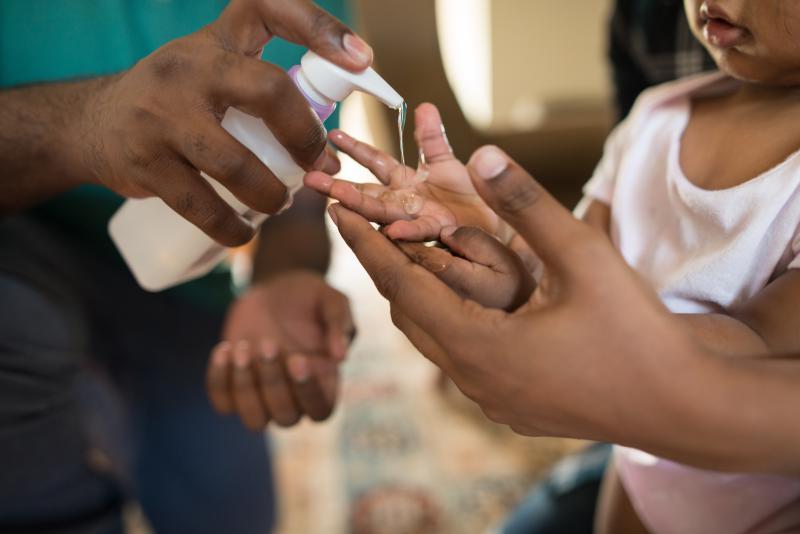Companies in difficulty
In developing countries, the vast majority of jobs are in the private sector, from informal market stalls to small farms to large enterprises. It is mainly in the private sector that more – and better – jobs need to be created to help eradicate poverty. Businesses need to invest, grow and increase their productivity, but the pandemic is complicating this. It could take years for the private sector to get back on its feet.
Hopes for a rapid resumption of business activity should be dampened by examining the effects of the pandemic on the financial situation of many businesses, especially small businesses with more difficulty accessing finance. In collaboration with the World Bank and the European Bank for Reconstruction and Development,the European Investment Bank conducted surveys in 2020 on companies in southern and eastern Europe and the Western Balkans. The results highlight some of the strains on businesses.
First of all, it is important to note that the situation of many companies was already difficult. In some countries, only one-fifth of enterprises actually make investments each year. This is partly due to credit shortages. More than half of enterprises in the Eastern and Southern Neighbourhood and 38% of enterprises in the Western Balkans were limited in their access to credit. Most of them were even discouraged from applying for the loans they needed.
A special module of the pandemic impact survey reveals that most companies in these regions have been forced to temporarily lower the curtain and that about three-quarters of them are facing a decline in the availability of cash and cash flow. In total, 19% said they were already behind schedule on loan repayments. Small and medium-sized enterprises (SMEs) seem to be paying the price for the limited use of digital technologies. Compared to large companies, half as many SMEs have managed to implement teleworking and even fewer have transferred part of their activity online. Some companies will not survive the pandemic and, of those that will, many will have to rebuild their finances before they can resume the long-term investments needed to create decent jobs.
In other regions, the situation could be even worse. According to a module of the COVID-19 survey in seven African countries, about 90% of companies have seen their turnover and cash flow decrease. A total of 24 percent are in arrears. In a region where 38% of businesses say access to finance is a major challenge, only 17% of businesses have used bank loans to address cash shortfalls.
Again, the low penetration of digital technologies has increased vulnerability, with only 18% of companies able to increase their online activity and 17% switch to teleworking. Only 7% of them had received or hoped for government assistance, which is why 9% had already filed for bankruptcy or declared bankruptcy.
Threatened financial flows
The financial difficulties of companies could be a bad omen for banks. Although they have so far held up well, banks are often damaged after economic crises, as bad loans accumulate in their accounts, even as the rest of the economy begins to recover. The risk that the increase in the number of non-performing loans will increasingly limit the ability of banks to lend to healthy businesses is high. The preliminary results of a survey of African banks conducted in early 2021 by the EIB’s Economic Analysis Department highlight what these banks consider to date to be the main effects suffered as a result of the pandemic. These effects are a decrease in asset quality (e.g. more bad loans) as well as a decrease in the demand for loans, echoing what is seen in business surveys.
Ultimately, the severity of the economic impact of the pandemic will depend to a large extent on the ability of governments to implement supportive policies that cushion the shock and support the recovery, while keeping businesses afloat and people employed. In addition to supporting businesses, continued spending on public services, social protection systems, and infrastructure is essential to support the recovery and prevent further negative consequences of the pandemic. To do this, funding is needed. In addition to an annual funding gap of $2,500 billion to achieve the Sustainable Development Goals, the OECD estimates that there is a shortfall of $1,000 billion per year for spending on the post-COVID recovery in developing countries.
However, most emerging markets and developing countries have little capacity to implement the kind of emergency economic measures adopted by developed countries. In addition, sovereign debt sustainability is a growing concern, particularly for countries that were already heavily indebted before the pandemic. Currently, 36 of the 70 low-income countries examined are at high risk of debt over-indebtedness or are already struggling to service their debt. The prospect of rising inflation and interest rates in the United States could undermine risk appetite and put additional pressure on access to external financing for emerging and developing economies. Private external financing for developing countries has already collapsed by about $700 billion in 2020, with remittances falling by about 20%, foreign direct investment by 35%, and net portfolio inflows (funds invested in financial assets such as sovereign bonds) by 80%
Stopping the spread
Of course, the priority is to stop the spread of COVID-19 and end the global medical emergency. This requires global cooperation and solidarity. The EIB has partnered with the European Commission to finance the Market Guarantee for COVAX vaccines and help it secure and accelerate the deployment of one billion doses of vaccines for people in 92 low- and middle-income countries. Other elements of the EIB’s response to the pandemic include support for the purchase of emergency medical equipment and COVID-19 treatment facilities and increasing local manufacturing capacity for pharmaceutical ingredients in Africa.
Halting the spread of COVID-19 also means strengthening our support for micro and small businesses to help them overcome the effects of the pandemic, thereby limiting the ability of a health crisis to trigger an economic crisis as well. In 2020, we increased our lending to micro and SMEs outside the EU by 83% to €4.2 billion. At the same time, it is important that the strains that the pandemic is exerting on public finances do not lead to a decline in investment in infrastructure. Our continued support for investment in social and economic infrastructure is helping to protect against this ripple effect of the pandemic.
Ecology, inclusion, and resilience
Once this pandemic is behind us, can we return to the status quo? In fact, COVID-19 has only exacerbated the slow pace of progress in eradicating poverty and achieving the Sustainable Development Goals around the world – goals that we already seemed poised not to achieve. In the light of the immense challenges facing the world in the coming decades, the type of development financing provided by the EIB is undoubtedly more important than ever.
Emerging and developing economies must return to growth in order to accelerate poverty eradication and raising living standards. But for our common good, this growth must be green. We must ensure that these countries have access to the finance and technical assistance they need to make new green technologies viable and attractive, thus providing a basis for a new model of sustainable development.
This green growth must also be inclusive and expand access to basic goods such as clean energy, water, and mobility, as well as education and health, in order to ensure equal opportunities. It is essential to ensure that businesses and micro-enterprises have access to the financing needed to meet huge needs for decent jobs. Development aid must promote high standards on issues such as gender equality, human rights, and labor law, as well as the transparency needed to combat corruption.
Resilience must also be the watchword. This is one of the lessons we can learn from the pandemic. In the coming decades, we will see an increase in the risks associated with climate change and extreme weather events, as well as the persistence of the risks of conflict and possible future pandemics. Ensuring resilience in the areas of energy, food, education, health, and business requires urgent investment, including in infrastructure. Investments are needed to increase access to quality services in the health and digital sectors. Resilience requires economic diversification and the mitigation of vulnerabilities due to high levels of debt and the fragility of financial systems.








